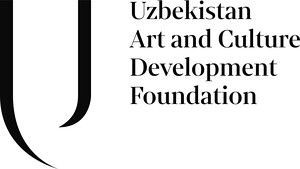The Pavilion is commissioned by the Uzbekistan Art and Culture Development Foundation
April 13–October 13, 2025
Taras Shevchenko street, 1
100 029 Tashkent
Uzbekistan
Hours: Monday–Friday 10am–7pm
T +998 71 207 40 80
info@acdf.uz
The Uzbekistan Art and Culture Development Foundation (ACDF) announces the theme of the Uzbekistan Pavilion at Expo 2025 Osaka: Garden of Knowledge: A Laboratory for a Future Society. Echoing the overarching theme of this year’s expo – Designing Future Societies for our Lives – the Pavilion, designed by internationally renowned ATELIER BRÜCKNER, celebrates Uzbekistan’s cultural heritage, innovation, and commitment to sustainability.
Inspired by Khiva and the Khorezm region’s architectural and intellectual legacy, the two-storey, 750 square-metre space blends tradition with forward-thinking design, mirroring the life cycle of a garden. Khiva, a UNESCO-listed city, has long been a centre of learning, where generations of scholars, artisans, and merchants exchanged knowledge within its madrasahs and courtyards. The Pavilion reinterprets this heritage as a contemporary space for gathering and exchange. Its structure integrates brick and clay, representing earth and heritage, and sugi wood, a cypress cultivated near Osaka, reinforcing environmental responsibility. The triangular plot reflects the tumar, a traditional Central Asian amulet symbolising protection, while the floor garden evokes Uzbekistan’s landscape serving as a meeting point for visitors.
The Pavilion’s design follows a symbolic journey from planting seeds of knowledge to harvesting ideas. Across three levels, visitors explore immersive thematic areas that highlight Uzbekistan’s forward-looking initiatives, aligned with UNESCO’s sustainable development goals including quality education, lifelong learning, clean energy, resilient infrastructure, and sustainable innovation.
The exhibition highlights Uzbekistan’s transition to a green economy through renewable energy projects, green transportation, and energy-efficient housing. Key projects include the New State Museum of Art by Tadao Ando and revitalisation efforts in the Aral Sea Basin. The Pavilion also showcases Uzbekistan’s commitment to advanced education, research, and the preservation of traditional crafts.
Starting in the Soil, a ground-level space featuring key sustainability and innovation projects, visitors ascend to the Main Cylinder. A moving platform, using technology new to Japan, offers a 360-degree multimedia experience, tracing Uzbekistan’s transformation from its intellectual heritage to contemporary advancements, highlighting traditions, crafts, and landmarks such as Registan Square in Samarkand. The journey culminates in the Garden of Knowledge, an open-air terrace where overlapping pillars create a dynamic interplay of light and shadow, inspired by the forest of columns in Khiva’s Juma Mosque. Visitors can enjoy an Uzbek tea ceremony, relaxing on traditional ceramic stools designed by Japan-born, Lebanese Nada Debs.
Designed with legacy in mind, after Expo 2025 Osaka the Pavilion’s modular components will be disassembled and reconstructed in Uzbekistan, eventually becoming a studio, workshop, or an educational space.
Chairperson of the Uzbekistan Art and Culture Development Foundation and Commissioner of the Pavilion, Gayane Umerova says: “Uzbekistan has long stood at the crossroads of ancient civilizations, where scientific and cultural knowledge flourished along the Silk Road. The Pavilion is a symbol of our nation’s commitment to sustainability and innovation and reflects ACDF’s focus on long-term contributions to cultural development locally and globally. It is also a globally recognised architectural achievement, recently awarded Gold at the German Design Award, underscoring our dedication to preserving heritage, embracing forward-thinking design, and fostering international dialogue.”
Shirin Frangoul-Brückner, Founding Partner and Managing Director of Atelier Brückner, says: “We are thrilled to have received Gold at the German Design Award as sustainable architecture and innovative design, seamlessly combining tradition and modernity, are more important than ever. The Garden of Knowledge Pavilion is not only a symbol of Uzbekistan’s promising future but also a meaningful contribution to a responsible and sustainable society. Its modular, resource-efficient design and fusion of history, culture, and innovation inspire change beyond Expo 2025.”

